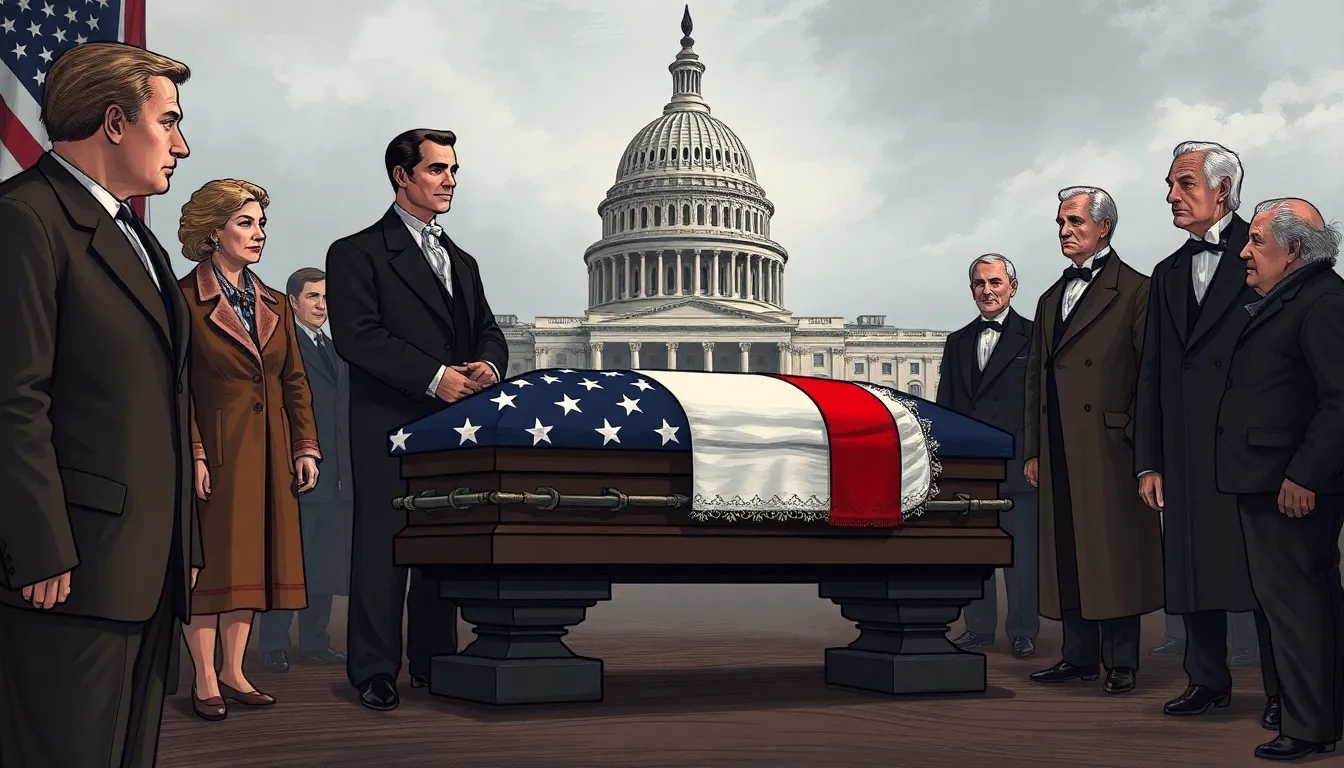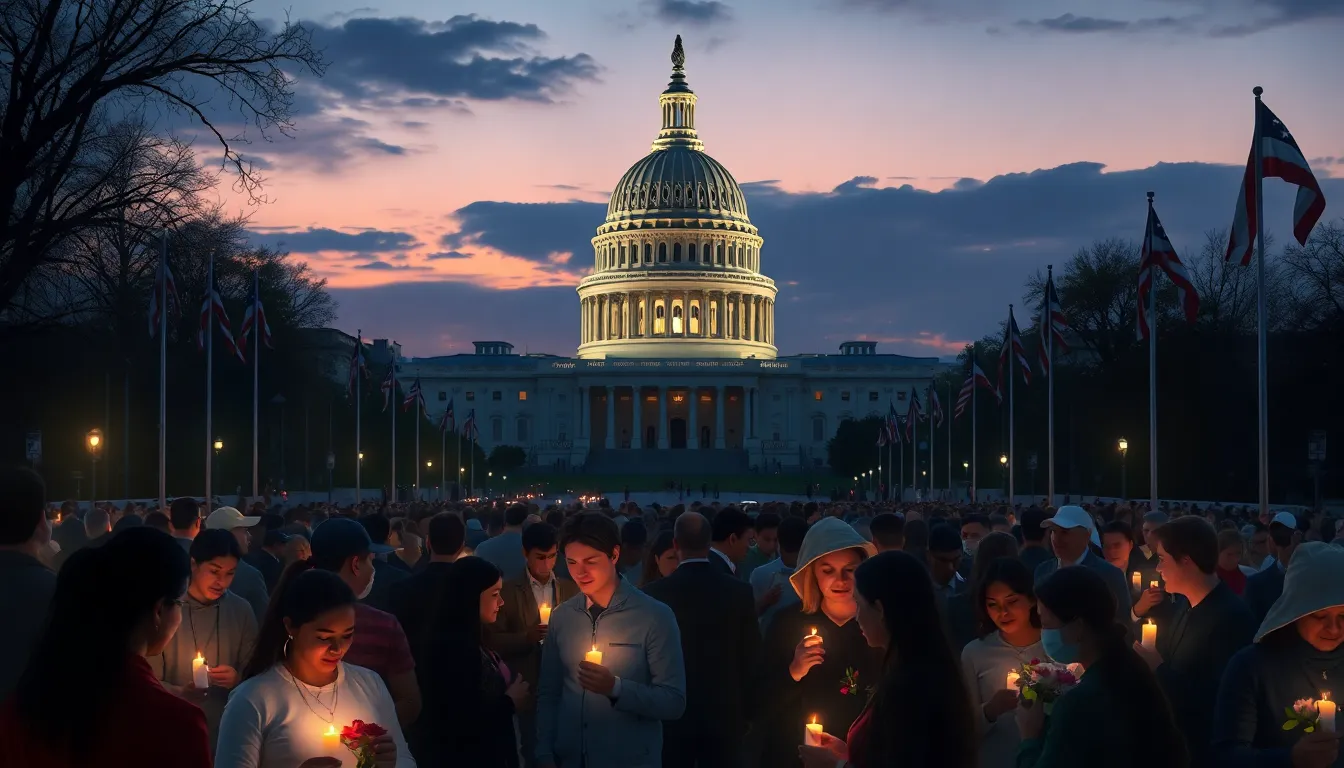Table of Contents
ToggleIn a world where political drama often rivals the best soap operas, the thought of a president-elect meeting an untimely demise can feel like a plot twist straight out of a thriller. But what happens if the unthinkable occurs? It’s not just a headline; it’s a constitutional conundrum that could leave the nation in a state of suspense.
While we all hope for a smooth transition of power, the reality is that unforeseen circumstances can throw a wrench into the works. From the intricacies of the 25th Amendment to the role of the vice president, the process is more complex than it seems. Buckle up as we unravel this serious topic with a dash of humor and a sprinkle of knowledge, ensuring you’re well-informed about what could happen if a president-elect bites the dust before taking office.
Understanding the Succession Plan
A clear succession plan exists for situations where a president-elect dies before inauguration. This plan ensures a smooth transition of power, maintaining stability within the government.
The Presidential Succession Act
The Presidential Succession Act outlines the order of succession. This legislation specifies that if a president-elect dies, the vice president-elect takes over. Following the vice president, the next in line includes the Speaker of the House and the President pro tempore of the Senate. The Act establishes a designated hierarchy, which prevents uncertainty during transitions.
The Role of the Vice President
The vice president plays a crucial role in the succession process. If a president-elect passes away, the vice president-elect assumes the presidency immediately. This system provides continuity and preserves the electoral mandate. Responsibilities for the vice president also include preparing to step into presidential duties and representing the administration during the transition period. The vice president’s experience becomes essential for governance and maintaining stability.
Historical Context

Events in history provide insights into the implications if a president-elect dies before taking office. Such occurrences prompt examination of established protocols and highlight the importance of succession laws.
Notable Incidents in US History
The death of William Henry Harrison in 1841 marks one significant event. He passed just 31 days into his presidency, leading to discussions about presidential succession. Another incident occurred with Zachary Taylor, who died in office in 1850. His death raised questions regarding the role of the vice president and the need for clarity in succession. More recently, the assassination of Robert F. Kennedy in 1968, while not directly related to the presidency, emphasized the vulnerability of elected officials. These incidents collectively underscore the necessity of understanding the constitutional framework governing presidential succession.
Changes to Succession Laws
The Presidential Succession Act of 1947 revamped earlier laws, providing a clear line of succession. This act ensures that the vice president assumes the presidency if the president-elect dies. Following the vice president, the Speaker of the House and the President pro tempore of the Senate follow in the line of succession. In 1967, the 25th Amendment further clarified succession issues, addressing scenarios of both presidential and vice presidential vacuums. These legislative changes underscore the evolving nature of succession laws, focusing on stability during transitions of power.
Legal Implications
The death of a president-elect raises significant legal implications regarding the transition of power. Various protocols govern the situation, ensuring continuity in leadership.
Impact on Election Outcomes
A president-elect’s death impacts the electoral landscape considerably. The political party of the deceased candidate typically selects a new nominee, potentially reframing strategies and tactics. Replacement candidates must navigate the complexities of gaining voter support swiftly. Recent events highlight how quickly political momentum can shift following such unforeseen changes. Voter sentiments may also change, influencing future elections depending on the party’s new candidate and their alignment with the deceased’s platform.
The Role of Congress
Congress plays a crucial role in the aftermath of a president-elect’s death. It must implement the Presidential Succession Act, ensuring a smooth transition of authority. The vice president-elect ascends to the presidency, prompting the necessity for congressional confirmation. Key committees examine the implications of the succession, fostering dialogue on potential legal adjustments. Congress holds the responsibility of maintaining electoral integrity, addressing any questions or concerns arising from this situation. Legislative discussions can redefine protocols to ensure that future transitions remain stable and effective.
Public Reaction
Public response to the death of a president-elect evokes a mixture of shock and uncertainty. Immediate reactions often flood social media, news outlets, and public gatherings.
Media Coverage
Coverage from news outlets prioritizes reports on the potential impact on the country. Major networks provide continuous updates, analyzing constitutional implications and voter reactions. Expert commentary typically includes constitutional scholars discussing the legal ramifications of the event. Live broadcasts capture spontaneous gatherings where people express their emotions. Furthermore, public statements from political leaders aim to provide reassurance and stability during a time of flux.
Public Perception and Fear
Fear and anxiety surrounding the future of governance surface swiftly among the populace. Questions about the election process and candidate selection dominate conversations. Many worry about stability in leadership and ongoing policies. Trust in government institutions may take a hit, leading to increased public scrutiny. Opinions often split by political affiliation, fueling passionate discussions on succession laws. Emotional responses manifest through protests, vigils, or community meetings, reflecting the profound impact on the national psyche.
The death of a president-elect presents a complex scenario that underscores the importance of established protocols. The clear succession plan ensures that governance continues without interruption. With the vice president-elect stepping into the role and Congress playing a vital part in confirming this transition, the nation can maintain stability even in the face of tragedy.
Public reaction to such an event would undoubtedly be intense, highlighting the emotional and psychological impact on the nation. Understanding these processes not only informs citizens but also reassures them that mechanisms are in place to navigate these challenging situations. Ultimately, the resilience of democratic institutions shines through, reinforcing the commitment to continuity in leadership.





